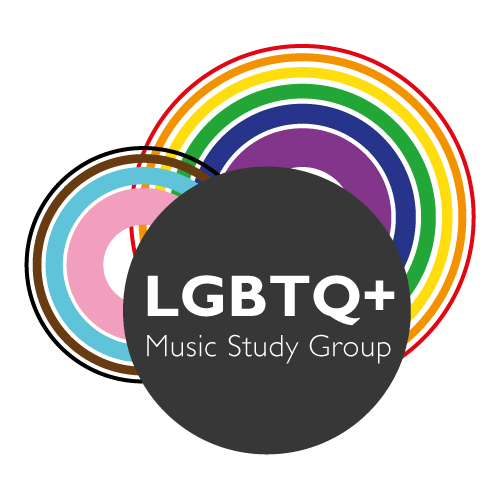What does it mean to survive, to resist, to care and connect through music, sound, and queer practice and how can scholarly work engage with this? These questions formed the heart of the inaugural Summer School of the LGBTQ+ Music Study Group, held at Humboldt Universität zu Berlin from 22 to 25 July 2025.
Nearly sixty scholars, artists, and activists – many of whom were all or several of these things at the same time – gathered under the theme Queer Survival, Organizing, and Worldmaking to exchange ideas, share practices, and build community. Organized by Stefanie Alisch, Jules de Bouverie, Luis Manuel Garcia-Mispireta, Thomas R. Hilder, Daniele Shlomit Sofer, Shirley Wick and Ilgaz Yalçınoğlu, the Summer School offered lectures and panels, as well as embodied workshops, sonic explorations, and collective experiences in worldmaking. The event encouraged mutual learning between participants – who hailed from over 20 countries – by centring diasporic, Indigenous, and postcolonial perspectives and reflecting on white norms of knowledge production. Many participants expressed that the event provided a much-needed space for queer dialogue, creativity, and critique, and they hope it will become a recurring forum.
A Diverse Program of Voices and Formats
The Summer School’s program reflected its commitment to blending scholarly discussion with creative practices. Each day, workshops and talks invited participants to engage beyond traditional academic formats. For example, Omar Kasmani led a writing workshop titled Writing, Feeling, Worlding, encouraging participants to explore stories as vessels or places of refuge, writing in scenes that defy a coherent story, but which “invite queer forms of gathering” (Kasmani 2021, 166). Equally engaging was the roundtable Gender and Queer Studies in Germany Today, with Elahe Haschemi Yekani, R. Aslı Koruyucu, and Patrick Wielowiejski, moderated by Shanti Suki Osman, which mapped the current institutional and political landscapes and highlighted the challenges and opportunities for queer people in the academy.
As a medium of resistance, sound featured prominently: In the listening session Meshwar Mixtapes, Deema Amr, also known as DJ DumTak, took listeners on a sonic meshwar (Arabic for “journey”) through Palestinian memory. In their DJ talk, Sound System Epistemologies in Practice, GIN reflected on their musical journey and political practice within sound system culture, while Aporia Barrage introduced participants to the intricacies and pleasures of working with vinyl in a hands-on DJ workshop. Isabel Bredenbröker and Adam Pultz Melbye guided a sound walk through Berlin, inviting participants to experience the city at a slower pace by focusing on what and who gets to be heard.
Additional highlights included a zine workshop and a guided tour of the archive of Schwules Museum, underlining the importance of archives for queer survival, as well as a Rage Session, hosted by Holden Madagame, which offered a space for the embodied expression of anger and grief.
Sonic Activism, Archives, and Worldmaking
Beyond invited talks, the Summer School created space for participants to present their own work in themed sessions such as Sonic Activism, Politics of the Dancefloor, Bodies in Motion and Space, and Queering Central and Eastern Europe. Many scholars presented their ethnographic fieldwork, which documented queer lives as an act of resistance in the face of oppressive regimes. The presentations detailed projects from Latin America to Eastern Europe, Western and Southeast Asia. They displayed diverse and creative modes of artistic self-expression as well as ways to provide communal care and engage in political and educational work. Approaches spanned media analysis, archival work, artistic research and historical and sociological methods. The need to organize outside of (academic) institutions was discussed both as a matter of safety – such as Gender Studies reading groups gathering in local cafés after being banned from Iranian universities – and as a form of resistance against white hegemonic structures, where hierarchical reproduction and the silencing of marginalized groups impede collaborative work.
Participants highlighted how irony and playfulness – for instance, the queering of heteronormative musical genres and codes – can dissolve norms and build heterotopic or utopian worlds in nightlife, on stage and in online spaces. From preserving silenced narratives through oral histories to resisting erasure through auto-archiving, history and memory work played a vital role in this conversation. This was made explicit by one participant whose project transformed into archival work after the venues under study shut down. Layers of queer belonging and loneliness, the pressure of disclosure and the need for escapism were addressed as dimensions between survival and worldbuilding. Several participants advocated for ballroom and drag culture as significant forms of worldmaking, where growth and recognition of ballroom artists emerge through competition and queer kinship.
The Summer School was as much about discussing findings as it was about raising and refining questions. Research ethics and methodology were recurring topics: How can reciprocity and care guide scholarly work? What role can researchers play in sustaining communities, thus contributing rather than extracting through their work? What form of writing might convey the density and ambiguity of our observations? While various answers to these questions were offered, this event could only be the beginning of further negotiations in an ongoing exchange.
Organization and Support
The LGBTQ+ Music Study Group has been organising symposia, disseminating via a blog and a podcast, and forging a strong international community of LGBTQ+ scholars over the last nine years. Attempting a new format that could nurture new forms of creativity, sharing, and community, the inaugural Summer School was made possible through the collaboration of several institutions. Hosted by the Department of Musicology and Media Studies, Humboldt-Universität zu Berlin, the event was supported financially by the Alexander von Humboldt Foundation, the Emmy Noether research group “Sound System Epistemologies: Knowledge engendered through practice” funded by the Deutsche Forschungsgemeinschaft, as well as the Popular Music Studies chair at Humboldt-Universität. Other key figures offered generous support to the event, including members of the Center for Transdisciplinary Gender Studies at Humboldt-Universität. The organizing committee worked to create a program that not only showcased diverse scholarly and artistic practices but also fostered an atmosphere of care, collaboration, and community. For many, the Summer School offered more than an opportunity for academic exchange, it also served as a reminder of the importance of queer gathering to imagine and enact alternative futures.
This article has been published on the website of the LGBTQ+ Music Study Group.
Works cited
Kasmani, Omar: Thin, Cruisy, Queer: Writing Through Affect, in: Tauber, Elisabeth; Zinn, Dorothy L. (eds.): Gender and Genre in Ethnographic Writing, Cham: Palgrave Macmillan 2021, pp. 163–188.
Shirley Wick ist seit dem Staatsexamen in Schulmusik und Germanistik sowie weiteren Studien in Musikwissenschaft, Vokalpädagogik und Soziologie in Karlsruhe und Bamberg in der Musikwissenschaft tätig, promoviert zum vergeschlechtlichten Hören von Gesangsstimmen und engagiert sich in akademischen Netzwerken, etwa als Board Member der LGBTQ+ Music Study Group. Weitere Forschungsinteressen und erste Publikationen umfassen Zusammenhänge zwischen Klang und nicht-/queeren Identitätskonstruktionen, Musik in sozialen Bewegungen und künstlerische Wissenschaftskommunikation.

